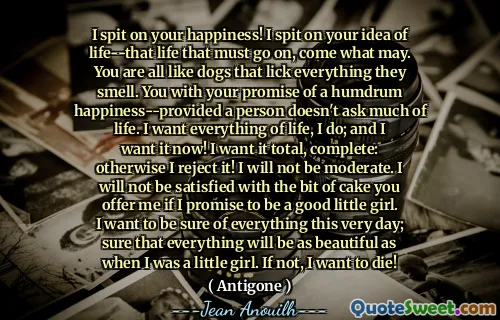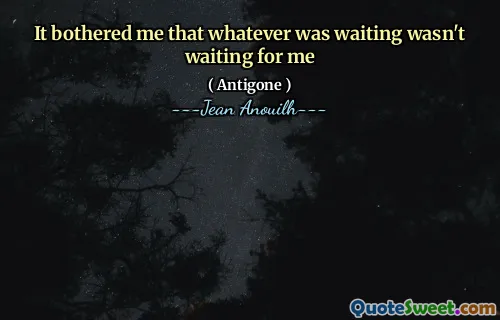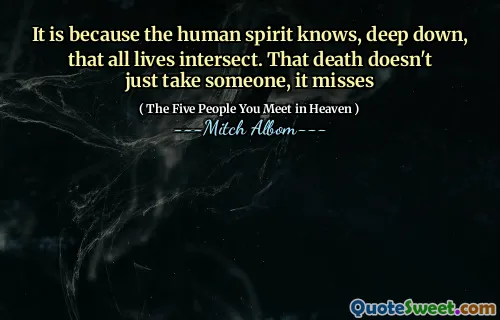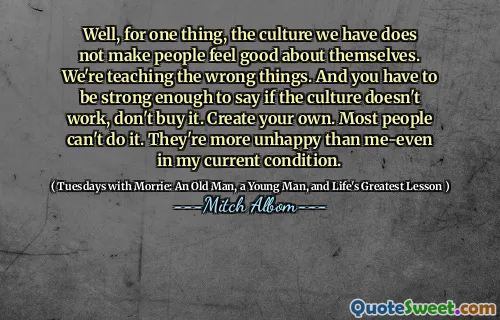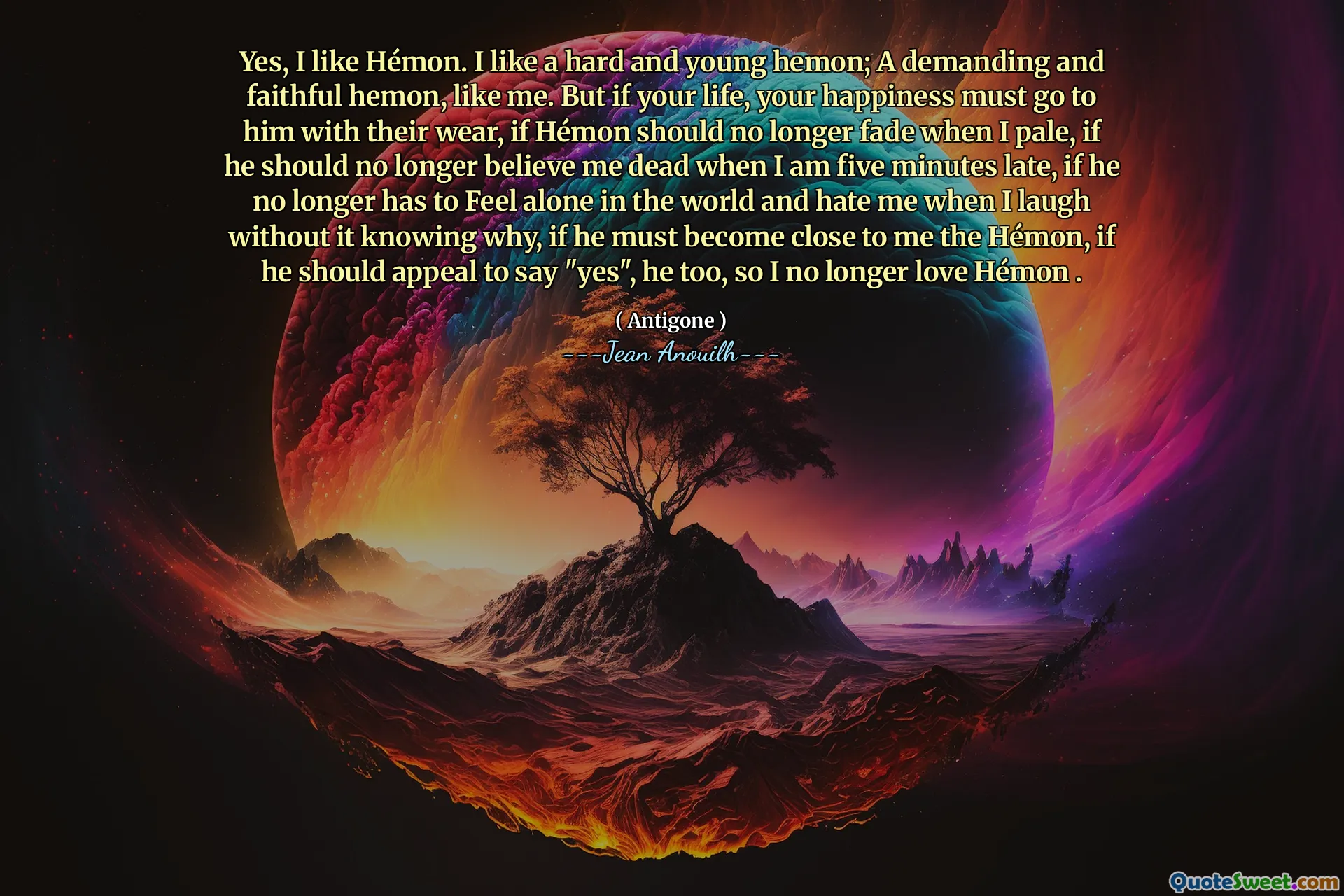
是的,我喜欢Hémon。我喜欢一个艰难而年轻的Hemon;像我一样苛刻而忠实的仇恨。但是,如果您的生活,您的幸福必须穿着他们的衣服去找他,如果我苍白时不再褪色,如果我不再相信我迟到了五分钟时就死了,如果他不再需要在世界上感到孤独,而当我不知道为什么要与Hémon变得亲近时,我会嘲笑我,如果他必须与Hémon变得亲近,那么他也不再喜欢“是”,所以我也不再爱我。
(Yes, I like Hémon. I like a hard and young hemon; A demanding and faithful hemon, like me. But if your life, your happiness must go to him with their wear, if Hémon should no longer fade when I pale, if he should no longer believe me dead when I am five minutes late, if he no longer has to Feel alone in the world and hate me when I laugh without it knowing why, if he must become close to me the Hémon, if he should appeal to say "yes", he too, so I no longer love Hémon .)
演讲者对Hémon表示复杂的钦佩,强调了对反映自己忠诚的坚强而虔诚的伴侣的渴望。他们欣赏Hémon的强度和年轻性,但也强调了相互理解和深厚联系的必要性。演讲者将爱定义为一个国家都应该感到安全的状态,而不会因对彼此的感受的怀疑而感到负担。
但是,说话者的思想发生了变化,因为他们认识到,如果Hémon的幸福会因他们而取消,或者如果他失去了个性和力量,他们的爱就会改变。他们建议,如果Hémon变得过于依赖,而停止拥抱自己的情绪,例如一个人感到孤独或对演讲者的喜悦感到困惑,他们的爱就会减少,从而失去其本质和意义。
